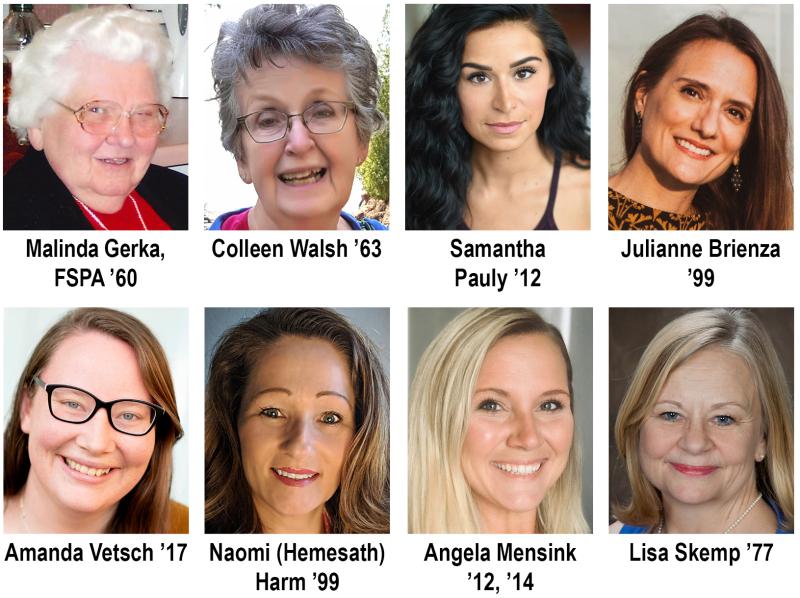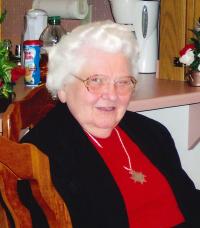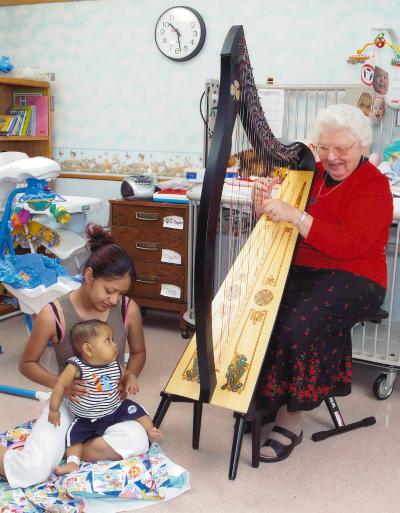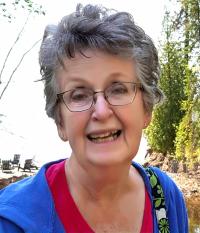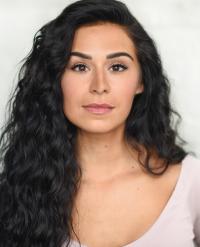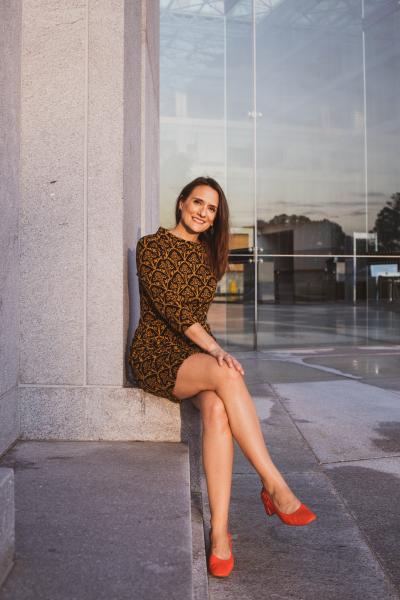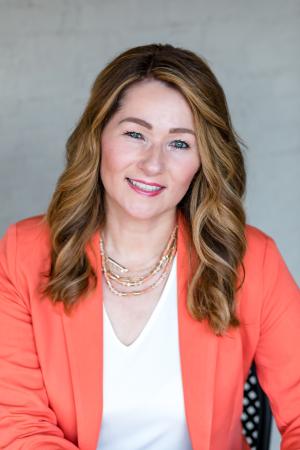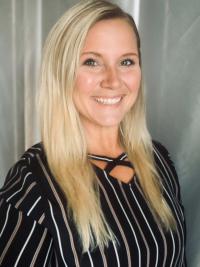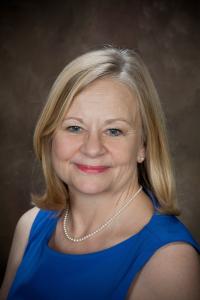Viterbo University honored eight graduates at its annual Distinguished Alumni Awards ceremony, which this year was an online virtual event on Friday, Oct. 9, as part of Viterbo Days.
Viterbo’s alumni awards, which go back to 1967, started a new tradition last year, with each of the university’s three colleges honoring two alumni, one for professional development and one as a rising professional. In addition, the tradition of honoring alumni with the Spirit of Francis Award and Service to the University Award continues.
Winners of 2020 Distinguished Alumni Awards include the following:
- Spirit of Francis: Malinda Gerke, FSPA ’60
- Service to the University: Colleen Walsh ’63
- COBPAL Rising Professional: Samantha Pauly ’12
- COBPAL Professional Achievement: Julianne Brienza ’99
- COEELS Rising Professional: Amanda Vetsch ’17
- COEELS Professional Achievement: Naomi (Hemesath) Harm ’99
- CONHHB Rising Professional: Angela Mensink ’12, ’14
- CONHHB Professional Achievement: Lisa Skemp ’77
Spirit of Francis — Malinda Gerke, FSPA ’60
After Malinda Gerke, FSPA graduating from Viterbo University in 1960 with a bachelor’s degree in music, she emerged as a trained musician ready to teach, primarily as a private music instructor. But the strong urge to learn she gained at Viterbo and her eagerness to follow where God would guide her has taken her in some unexpected directions.
Viterbo prepared her with a “firm foundation in knowledge, the habits of learning, and ethics. The sisters always did their best, and it showed. Now, I feel that Viterbo is continuing this tradition,” said Sr. Gerke, who has lived by the idea that everybody should celebrate the miracles in their lives. “I firmly believe that if we give God a chance, He will work miracles for and through us daily. We will not be able to stop Him.”
A La Crosse native, Sr. Gerke went well beyond being a music teacher in the 30 years after she graduated from Viterbo. She became a classroom instructor, teaching everything from art to computer science, religion to math. She also served as a school newspaper mentor, directed many stage productions, and conducted choirs from elementary school through high school.
When she did direct a play, it was vital to Sr. Gerke that every student have a part in the play and that all the students felt good about their involvement.
If Sr. Gerke likes anything better than teaching, it might be learning and trying new things. After graduating from Viterbo, she studied junior high choral performance for a year at Colorado College, earned a master’s degree in music education from the University of Wisconsin-Milwaukee, and earned a graduate certificate in liturgy from Notre Dame University.
In 1990, Sr. Gerke returned to St. Rose Convent to serve as liturgist, a post she held for 11 years. In that position, Sr. Gerke made it a point to ensure that the liturgy for a sister’s final farewell spoke of her life, celebrating all phases. As it was with St. Francis, the final days of a sister’s life were as notable as the works that came before.
After her return to St. Rose, Sr. Gerke found the convent’s original harp and pushed to get it restored to working order. When it was back in shape, she learned to play the harp, mostly on her own, and has since become well known for playing harp music at the local hospitals, at religious services and Viterbo campus events of all sorts, as well as in a wide variety of other settings. Before the COVID-19 pandemic, she would play at Mass on Sunday’s at Viterbo’s San Damiano Chapel.
Sr. Gerke also became an expert tour guide at St. Rose, telling the inspirational story of the vow the early Franciscan Sisters of Perpetual Adoration made that led to the creation of the Maria Angelorum Chapel. In 2017, Sr. Gerke was inspired to write her third book, Mary of the Angels Chapel: God’s Answer to a Bold Promise, with photos by John Zoerb and Sue Retzlaff.
In addition to writing, Sr. Gerke has shared her story and perspectives often as an inspirational speaker, encouraging her listeners to “celebrate God’s action in their lives.” She also has used technology to reach out to serve those who cannot get to a chapel by creating online prayers for the FSPA website.
Receiving the Spirit of Francis Award is an especially deep honor for Sr. Gerke, as she feels a strong connection to St. Francis through her harp playing. She said a quote from St. Mechtilde sums it up for her: “As the Godhead strikes the note, humanity sings. The Holy Spirit is the harpist and all the strings must sound which are strong in love.”
Service to the University – Colleen Walsh ’63
Colleen Walsh ’63 graduated from Viterbo University feeling well prepared for a career in education. But beyond that, Viterbo prepared her for a life of learning and service.
After graduating from Mauston Madonna High School, Walsh came to Viterbo intent on becoming a classroom teacher or working in some other capacity in education. She majored in English and minored in speech-drama, getting involved in the Alpha Psi Omega drama fraternity and the Standards and Etiquette Committee.
At Viterbo, she said, she learned self-discipline, study skills, and teamwork (from working on plays), with her favorite instructors including Srs. Marie Leon, Grace Clair, Justille, and Celestine, the latter of which got her started on a lifelong habit: keeping a TBR (to be read) list.
Walsh went on to earn a master’s degree in speech education from the University of Wisconsin-Oshkosh and had a long career in education, teaching high school English and speech in the Marshfield, Neenah, and Menasha schools before going to work at University of Wisconsin-La Crosse, retiring from her multicultural student services department position as a senior development skills specialist in 2000 after 24 years at the university.
In addition to a love of learning and reading, the sisters at Viterbo also instilled in Walsh a passion for service, to her church, community, and Viterbo.
Beyond her unwavering financial support for Viterbo and its students going back 34 years, Walsh served six years on the Viterbo Alumni Association board and is an active emeritus board member. She has been a fixture at the alumni children’s Christmas party events and at commencement “quick stop stations,” congratulating and assisting graduates.
Walsh took part in a Viterbo rebranding focus group in 2017, and has coordinated or chaired several reunion celebrations, including the 50-year reunion for the Class of 1963 and a half-century celebration for the theatre program.
Walsh and her late husband Paul Neman, a beloved principal for years at Onalaska High School, raised a son, Paul, and a daughter, Mary.
College of Business, Performing Arts, and Leadership Awards
Rising Professional — Samantha Pauly ’12
As an undergraduate theatre major/dance minor at Viterbo University, Samantha Pauly ’12 made an impression as someone who was going places, someone who would put in the hard work necessary to succeed in the ultra-competitive world of musical theatre. Through her hard work and determination, she realized a long-time dream in 2020: becoming a Broadway performer.
Pauly’s talent as a student at Viterbo, especially as a vocalist was hard to miss, but Karla Hughes, her voice coach and academic advisor, recognized that Pauly had a lot more going for her than raw talent.
“Sam was a model voice student due to her determination to learn and her outstanding work ethic. Sam has an exceptional voice, but she realized this alone wasn’t enough in the theatrical world,” Hughes said. “To achieve excellence in music theatre requires dedication, patience, humor, and commitment. Sam lacked none of these traits and excelled in her studies.”
As an advisee, Hughes added, “Samantha was one of the easiest students to work with. For each advising session, Sam was prepared, having dedicated sometimes several hours in preparation for our meeting. … She never expected me to do the work for her, only to guide her on her way to finding her own answers. … This professionalism as a student has served her well in the professional theatre world."
After graduation, Pauly relocated to Chicago and had a steady string of starring roles in regional and touring productions. By 2018, though, she was unhappy enough with her progress to consider throwing in the towel on her Broadway dream. But things turned around in 2019.
When offered the chance in early 2019 to audition for the North American debut production of Six at the Chicago Shakespeare Theatre, Pauly turned it down several times as she had another show in the works. Under pressure from the music director of Six, Pauly finally agreed to an audition and was cast as Katherine Howard.
It turned out to be a life-changing decision. Six was a hit and Pauly and her fellow cast members were asked to make the big leap with the show to Broadway, starting preview performances at the Brooks Atkinson Theatre in February 2020. The run was officially supposed to start March 12, but COVID-19 put the show’s opening on hold.
“I had resigned myself to the fact that I might never be on Broadway and would probably never go to the Tony awards,” said Pauly, a native of Bettendorf, Iowa, who is married to Matt Sheehan. “But now I’m originating a principal role in an original Broadway cast—definitely unexpected and beyond my wildest dreams.”
In the summer of 2019, Pauly took a break from Six to star as Eva Peron in a West End revival of Evita in London, an experience that she said helped her tap into an inner confidence and power she hadn’t been able to reach before. For her performance in Evita, she earned four acting award nominations, including The Oliviers.
Honored and humbled by the recognition from her alma mater, Pauly is rightfully feeling good about how her career has progressed.
“I think I’ve been most proud of just making it this far in my career, a career that can really kick people when they’re down, all while trying to get a handle on depression and anxiety,” Pauly said. “I’m proud of myself for staying driven and powering through some tough times.”
Professional Achievement — Julianne Brienza '99
Julianne Brienza ’99 has a long history of going beyond expectations. Saddled with learning disabilities including dyslexia, her high school principal in Montana told her mother not to expect her to graduate. Fast forward a couple years past her high school graduation and Brienza is making the Viterbo University dean’s list while taking 21 credits.
Brienza’s passion for theatre drew her to Viterbo, and she graduated with a bachelor’s degree in theatre. But she also was drawn in by the Franciscan spirituality and contemplation that infused the campus, taking so many philosophy classes that she added a philosophy minor to her theatre major, as well as an art minor.
“Viterbo certainly honed my work ethic and commitment to service,” Brienza said. “These attributes have been critical to my success up to now, as well as my future success.”
What kind of success has Brienza had since graduating from Viterbo? A snippet from a story written about her in 2016 offers a clue: “She has effectively changed the face of theatre in (Washington) D.C., by rewriting the equation and making it by the people, for the people.”
Brienza is the founding director and president of Capital Fringe, an organization that took shape in her living room in 2005 and is responsible for putting on the annual Capital Fringe Festival in Washington. The festival has grown to a month-long event featuring performing artists representing 100 local, national, and international groups offering 600 performances in 15 venues, much of it cutting edge, new original works.
It was at Viterbo that Brienza started to develop her theatre skills beyond the stage. She worked at the La Crosse Community Theatre and in Viterbo’s Fine Arts Center, and had a leadership role in TART, a theatre group at Viterbo. Her responsibilities involved raising funds for the group (running bake sales mainly) and organizing the end-of-year party, which she described as “epic.”
Brienza wasn’t sure about her future path upon graduation from Viterbo, but then, she said, “who graduates with an undergraduate theatre degree and knows precisely what they will be doing?”
Her next stop was in Philadelphia, where she was accepted into the intensive Arden Professional Apprenticeship Program at the Arden Theatre Company. “You spend 60 to 80 hours a week for nine months learning all aspects of the business,” Brienza explained. “I consider the APA program to be my graduate school experience.”
During the three years she was in Philadelphia she sparked her passion for “fringe” performing arts festivals with Greater Philadelphia Area Fringe Arts, where she did everything from working in the box office, managing venues, serving on technical crews, and performing on stage.
While in Philadelphia, she created the city’s largest year-long arts-in-residency program, and after moving to Washington created the Mead Theatre Lab Program, which offered intensive production and development assistance for performing artists, writers, directors, producers, and independent theatre companies.
Brienza’s impact on the Washington theatre scene has not gone unrecognized. She has won multiple D.C. Mayor’s Arts Awards (from three different mayors) for her innovation and leadership, and the Washington Post presented her with the Helen Hayes Award for Innovative Leadership in Theatre.
To Brienza, her graduation from Viterbo seems like a lifetime ago and being honored by the university came as a big surprise, prompting her to inquire how it came about. “The response I got and the further conversations I had with the alumni office have reminded me of the kindness at Viterbo and its commitment to the Franciscan way that was instilled in me during my time there,” she said. “This award is meaningful to me today and will remain so for the rest of my life.”
College of Education, Engineering, Letters, and Sciences
Rising Professional — Amanda Vetsch ’17
Amanda Vetsch ’17 expressed some surprise that she would be honored as a “rising professional,” but there should be little doubt that she is well equipped to rise to a wide variety of challenges.
Vetsch has cultivated the skills to look at the human condition from different angles. As an undergraduate at Viterbo, she majored in biology and minored in math and religious studies. She expects to complete work on her master’s degree in theology (with a concentration in justice and reconciliation) next May at Luther Seminary in the Twin Cities.
“Two of her greatest strengths are transdisciplinary approaches to understanding human being and suffering and a deep appreciation for the sacred in all of creation,” said Matthew Bersagel Braley, an associate professor in Viterbo’s Ethics, Culture, and Society program. “The former is evident in the path she chose through undergraduate courses that tacked back and forth between science and the humanities, excelling in both and always clear that it was not a choice of one of the other but a synthesis that would help her best navigate the existential and empirical dimensions of the wicked problems facing the world. The latter gives way to a disposition of grace and gratitude in her relationships.”
In addition to her master’s degree work, Vetsch also works in the Christensen Center for Vocation at Augsburg University as coordinator of the Riverside Innovation Hub, a program that works with faith communities as they “wonder, discern, and experiment with what it means to be a public church,” Vetsch said. This summer, she added, the focus became the role of the churches in “the holy, sacred, and messy work of racial justice and anti-racism.”
She also has been volunteering at a church “supply redistribution site” a few blocks from the former Minneapolis Police Department Third Precinct building, in a neighborhood that became a food desert overnight in the wake of the unrest in response to the murder of George Floyd.
In between Viterbo and her current pursuits, Vetsch lived and worked in the African country of Rwanda for a year as a volunteer with Young Adults in Global Mission. She spent her time there helping at the Leader’s School with science lab inventory, coaching sports, and “hanging out with students.”
As Vetsch explained, YAGM volunteers “serve in the spirit of accompaniment, walking alongside global companions in a manner that practices mutuality, interdependence, and solidarity.”
The mission to Rwanda was actually her second trip to Africa. As a Viterbo student, she went to South Africa as part of a service-learning and social justice course.
Wherever Vetsch’s path takes her, she said she feels her education at Viterbo was an excellent preparation and springboard.
“Viterbo allowed me to learn how to think critically and understand the world around me from multiple different pathways,” Vetsch said. “Viterbo equipped me to think critically, communicate effectively, and be inquisitive about the roles and connections that each person or community has as they bring about good in their ecosystems, communities, and neighborhoods.”
Professional Achievement — Naomi (Hemesath) Harm '99
When Naomi (Hemesath) Harm was looking for a college at which to train to become a teacher, she thought small. These days, though, she thinks big, global even, as the founder and CEO of Innovative Educator Consulting, a designer of innovative and transformative learning practices, and an in-demand speaker who has given addresses at more than 125 technology education conferences.
A native of Castalia, Iowa, a small farming community, Harm was attracted by Viterbo’s small campus and class sizes, in addition to its liberal arts focus and global and humanitarian studies. Harm had her hands full as a Viterbo student, raising three young boys with her husband, Jeffrey.
She majored in elementary education, with a minor in early childhood education, and recalled Larry Krajewski, an elementary education math professor, as especially influential. “I love math and science, and Dr. Krajewski was a professor that really made me think, provided me new ways of expressing and explaining why and how I solved math problems related to my world,” Harm said. “This provided me with a whole new appreciation and perspective to empathize with others of how their mathematical reasoning skills were different than mine.
Krajewski also inspired her to run her own “Magical Mathematician Family Nights.” “These after-school events involved multi-level grades of students of every ability and their family members attended as learners, so they too could build their lifelong learning confidence with number sense, be a role model for their children, and grow their mathematical growth mindsets,” Harm said.
Harm started her education career as a fourth/fifth grade looping teacher and instructional technical coach in the Bangor public schools for five years, during which time she earned a Master of Education in Professional Learning and Development degree at the University of Wisconsin-La Crosse.
After five years in Bangor, she took on the educational technology director position at Cooperative Educational Service Agency #4, a regional organization that provides educational professional learning services and resources for school districts. “This is where I found my true calling of leading, designing, and facilitating professional learning educational technology programs for 26 school districts and their K-12 educators,” Harm said.
After seven years at CESA #4, Harm took a leap of faith at the urging of her ailing father and charted her own path to create a woman-led educational leadership company. “This is how Innovative Educator Counseling was born, and it has now grown into a global edtech leadership corporation representing a team of women master educators, where each educator has a voice, each educator has a seat at the table, and each educator is encouraged to lean-in to be part of the collaborative team decision-making and problem-solving process.”
It was a bold move, one that has seen her giving educational keynotes across the country and in places around the globe, including Canada, Denmark, Dubai, France, and South Africa. She also has worked as a senior educational strategist for two major computer companies and a computer science and STEM startup company, while earning an administrative degree in women in executive leadership from Cornell University.
Harm, who now lives in Arizona, is an internationally known and respected educational technology innovator and expert who has amassed a long list of accomplishments and honors. Even so, the Viterbo alumni award stands out for her.
“It represents one of the highest and most prestigious honors in my life, as it acknowledges and celebrates my educational career and modeled ethical and servant leadership,” Harm said. “It is with great honor that I have had the opportunity to influence so many educators and students worldwide, while making a substantial positive difference and contributing to a world of educational good in K-12 teaching and learning environments. My heart is filled with deepest respect and gratitude to be a recipient of such an award and honor from Viterbo University.”
College of Nursing, Health, and Human Behavior
Rising Professional — Angela Mensink ’12, '14
There are at least a couple things in her life that Angela Mensink ’12, ’14 didn’t see coming after graduating from Viterbo University. One thing is being back at Viterbo pursuing another degree.
A native of Preston, Minnesota, Mensink earned her undergraduate degree in psychology before earning her master’s degree in mental health counseling. Since 2017, Mensink has been an adjunct faculty member at Viterbo and is now enrolled in the doctoral program for counselor education and supervision.
“I did not expect to return to Viterbo University for another degree, but fate brought me back to the university that has contributed to so much of my professional success,” Mensink said.
Then again, considering the high regard she holds for Viterbo, maybe it shouldn’t be too surprising that she is working on her doctoral degree here. “I have revered the long-lasting connection I have with Viterbo University as an alumni and a current student,” she said. “Having had positive and life-changing experiences as a student at Viterbo University, I feel privileged to provide students with an opportunity for intentional learning and development in the classroom as an adjunct instructor in both the psychology and counseling programs.”
Mensink also didn’t foresee becoming a specialist in infant mental health assessment and treatment. “I did not expect to be doing work with this population, though it is essential to address early mental health issues in the midst of poverty, social injustice, and barriers to receiving mental health care.”
A licensed professional clinical counselor, Mensink works for Woods Psychological Services, seeing patients in Minnesota across the spectrum, from infants and young children to adults and families. “These populations are typically underserved, at-risk families impacted by poverty, racial and/or social injustice, and significant trauma histories,” Mensink said.
She also is a board-approved clinical supervisor, overseeing practicum and internship students as well as post-master’s counselors. “I also provide mental health consultation to early childcare settings to develop culturally and trauma-informed practices while reducing implicit bias in childcare interactions and settings,” she added.
She also has an active research agenda, receiving summer research fellowships in 2010 and 2011, and has presented findings at major counseling events, including conferences in Hawaii and Canada.
Helping the underserved is a high priority for Mensink. She is an active volunteer with Global Partners’ Pine Ridge projects serving members of the Oglala Sioux Nation, and serves on the Birth to Grade 3 Committee in Winona, Minnesota, working to identify resources and needs of young children and their families and providing free training to schools, agencies, and other entities regarding Adverse Childhood Experiences through the Winona ACEs Initiative.
Mensink has gotten glowing reviews from her students at Viterbo, and her alumni award nominator also had high praise for her: “Angie clearly upholds Viterbo’s mission of faithful service and ethical leadership and embodies Viterbo’s core values. She is an excellent student, instructor, scholar, and colleague. Angie demonstrates a thirst for knowledge and service to others, and she has actively sought out professional and research experiences that extend well beyond what has been expected of her in her various programs and roles.”
For her part, Mensink holds Viterbo in very high regard, and the alumni award means a lot to her. “Receiving this award is humbling and is a testament to the education and mentorship I have received at Viterbo University,” Mensink said. “The values and mission of the university continue to resonate through my clinical and professional practice as well as my personal life.”
Professional Achievement — Lisa Skemp '77
When it comes to community health, one size does not fit all. That’s a valuable lesson Lisa Skemp ’77 first learned as an undergraduate nursing student at Viterbo University. Skemp wanted to do her senior year preceptorship in “coal country,” in the hills of Whitesburg, Kentucky, and the dean of the nursing school, Sr. Grace Clare Beznouz FSPA agreed that she should go to Kentucky.
“Learning about the deep coal mines and black lung disease among the men in Kentucky was very different from the health needs of those living with lung disease in La Crosse,” Skemp said.
The lesson was profound, and Skemp has concentrated much of her remarkable professional life in research and nursing education to promoting the idea of culturally informed health aging, knowing the community and what works best for it.
Skemp emphasized the importance of connecting with communities in health care in an address in 2019 at a Sigma Theta Tau International Society of Nursing induction ceremony: “As nurse leaders, we realize that most of health care occurs in the communities in which we live out our lives. While we want to improve the health of all people globally, we understand that we act locally because each community is unique in its diversity, history, strengths, goals, health needs, and readiness to address these health needs. What works in one community—in La Crosse, Wisconsin—may not be culturally appropriate in another community.”
Skemp is a professor and chair of the Department of Health Systems, Leadership, and Policy at Loyola University in Chicago. She taught community health at the University of Iowa College of Nursing and was the director of the Global Health Initiative at the Iowa Hartford Center of Geriatric Nursing Excellence.
Skemp held an endowed chair in gerontological nursing at Our Lady of the Lake College.
In 2000, Skemp received the American Public Health Association New Investigator's Award for her cross-cultural research in the Caribbean, and in 2003 she became a Claire M. Fagin Fellow for her work in rural community healthy aging.
At the University of Iowa, Skemp earned a master's degree in community health nursing and education and then her doctorate in nursing with an emphasis on community capacity building for healthy aging.
In 2015, Skemp became a fellow in the Gerontological Society of America and the American Academy of Nursing.
Before joining the faculty at Loyola, Skemp was an endowed chair in gerontological nursing at Our Lady of the Lakes College in Baton Rouge, Louisiana, and her extensive career also has taken her to the University of Iowa, the University of California-Los Angeles, the University of Northern Iowa, and Rush University.
In addition to writing scores of works published in scholarly journals and other publications, Skemp co-authored the second and third editions of Healthy Places, Healthy People: A Handbook for Culturally Informed Community Nursing Practice as well as chapters in at least eight other books. She also was a consultant for an HBO documentary, The Checker King, and was assistant producer of a documentary titled Healing Iraq: A Tale of Two Doctors.
Skemp integrates her role as an educator in community health nursing, global health, and gerontology with her research and practice in diverse cultures and communities. Her extensive ethnographic research has included community studies in St. Lucia, the West Indies, rural American Midwest farming communities, Mexican immigrant populations, Sudanese refugee groups, and south India villages.
Her teaching expertise is in qualitative research (working with doctoral students from nursing, medicine, global health, social work, and women’s studies), community and public health nursing, global health, and gerontology. She designed and taught a course called Interprofessional Community Capacity Building for Healthy Aging held in the Caribbean (St. Lucia) beginning in 2007 and in south India (beginning in 2009).
Skemp has shown her appreciation for the education she got at Viterbo by serving on the alumni association board for six years, supporting student scholarships, and serving as a guest speaker.
She also has had an impact on Viterbo in an indirect and unforeseen way. Skemp got her first college faculty position at Marshalltown Community College in Iowa, where she was one of the first teachers for a nursing student who would go on to become dean of the Viterbo University School of Nursing: Martha Scheckel.
Skemp made a big impression on Scheckel. “She was tough but instilled in me the principles and practices of quality nursing care that have lasted a lifetime,” Scheckel said.

